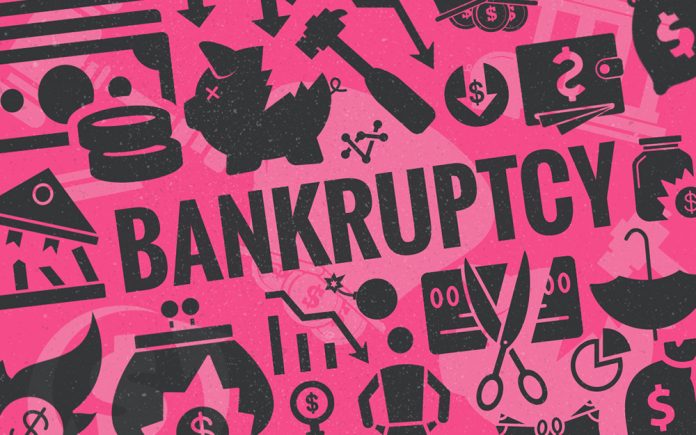
By Haddon Libby
With massive closures of small businesses in the Coachella Valley and around the United States because of the pandemic, an increase in bankruptcies can be expected from the people and businesses that are overwhelmed by their debts.
There are essentially three types of bankruptcy: Chapter 7, 11 and 13. Chapter 11 is strictly for businesses while Chapter 13 is for individuals.
Under a Chapter 13 bankruptcy, the person filing puts forth a plan to pay credits a portion of the amount due in return for relief from the total amount due and/or the repayment schedule. This restructuring of debts remains on your credit report for ten years and can cause challenges in securing new loans from banks.
If your checking account was overdrawn as part of the bankruptcy and was not repaid in full, there is a good chance that you may have challenges in opening new bank accounts in the future. Banks have a central reporting system where they keep track of the people and businesses that have burned them.
If the individual cannot make payments on their debts, a Chapter 7 bankruptcy is usually chosen. With this type of bankruptcy, the person owning the money essentially turns over assets secured by the debt to the creditor(s). While lenders can take the person to court for judgements and liens, the Chapter 7 bankruptcy once approved in the courts discharges the borrower from the underlying debts.
Creditors can force a borrower into Chapter 7 bankruptcy for non-payment.
Corporations, partnerships, and limited liability companies usually use Chapter 11. In these cases, a debt restructuring is proposed to creditors and presented to the courts for confirmation. Once the plan is presented, approved, and implemented, the bankruptcy is closed.
A Homestead Act declaration in California means that homeowners can keep up to $175,000 of the proceeds of the sale of the home even if the bank forecloses and takes over your property. To be entitled to keep home value, you must have already filed a homestead exemption form with the State of California. Single filers can keep up to $75,000 while couples are exempt up to $100,000. Those who are over 65 years of age, disabled or over 55 with a low income can keep up to $175,000. For the property to qualify, the homeowner must have lived at the property for the better part of four years. Like most government programs, there are a host of variations and ways to keep more of your equity should you have a second property. Properties can include burial plots.
Municipalities can use Chapter 9 of the Bankruptcy code to reorganize their debts. While a state cannot go bankrupt, other public entities can. Desert Hot Springs used this section of the bankruptcy code in 2001 as the result of a lost lawsuit.
Bankruptcies are often thrown out due to violations of the bankruptcy protection by the filer. Violations can be for a host of reasons. Quite often, the filer will have shown preference toward one creditor causing the bankruptcy protection to be removed by the court. Sometimes a bankruptcy is thrown out because the filer did not complete post-bankruptcy credit counseling or failed to pay court fees.
People or companies that hide assets from the bankruptcy process can be charged with fraud. Penalties for fraud include fine, possible jail time and being barred from declaring bankruptcy in the future.
Those who have already experienced a bankruptcy cannot file a second Chapter 13 bankruptcy for two years. A second Chapter 7 typically requires eight years to pass. If a Chapter 7 was declared the first time and a Chapter 13 for the second one, four years must pass. Where a Chapter 13 was declared first and the Chapter 7 second, six years must pass.
As there are several caveats and conditions to all of this, consult with an attorney or other bankruptcy professional for advice. This article is merely meant to be an overview.
Haddon Libby is the Founder and Managing Partner of Winslow Drake Investment Management. For more information, please visit www.WinslowDrake.com or email Hlibby@WinslowDrake.com.










































